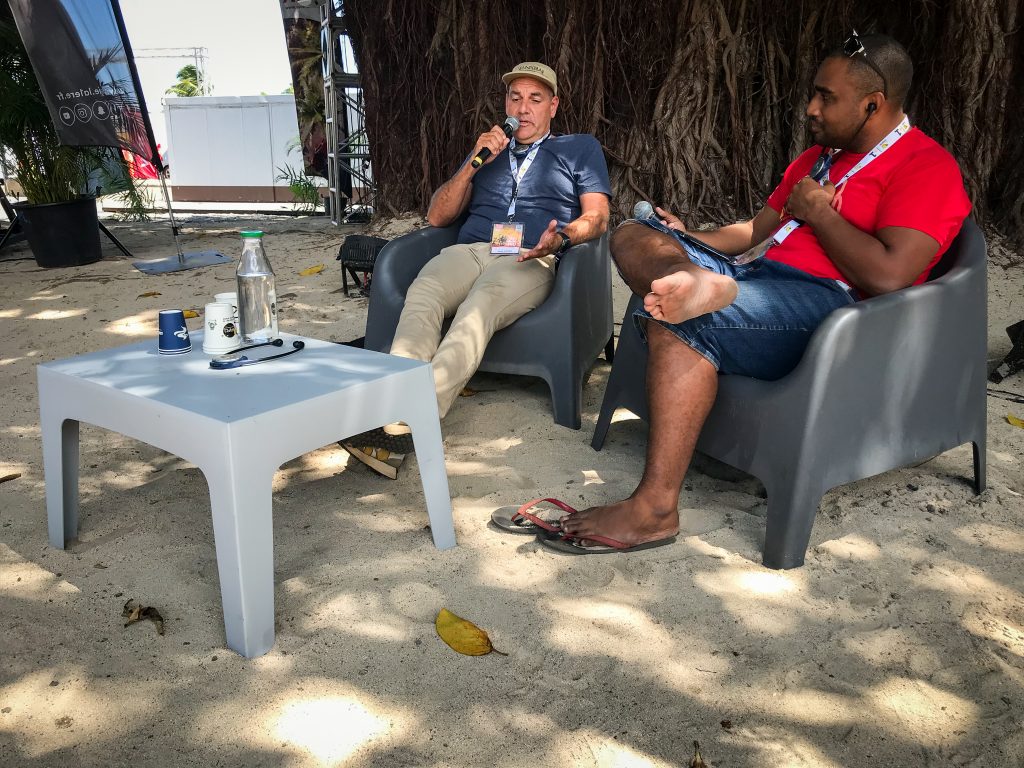This is the kind of film that takes you by storm. It exposes without compromise the implacable intervention methods of the Australian State towards the Aboriginal people. Aborigines represent 3% of the population in Australia, but are 23% of the prison population. Included in the official selection of this 20th edition of the FIFO, Incarceration Nation is a hard-hitting film. Meeting with its director, Dean Gibson.

It cannot leave you unscathed: it provokes anger, sadness, hope… emotions rage after viewing the documentary Incarceration nation. This film demonstrates without concession the impact that the colonial heritage has had on the Aboriginal people, who due to discrimination and violence, have developed traumas over generations. Today the Aboriginal population, decimated by colonialism, represents only a tiny part of the inhabitants of Australia. However, more than 20% of them fill the country’s prisons. Men, women and young people are treated with violence and inhumanity, sometimes leading to death: In 30 years, 474 indigenous people died in prison. « I have made several films, but this was the most important and difficult to make. I think the trauma shown in the film is intergenerational. It’s a very important theme in Australia but it’s not portrayed very much on television. I’m very proud to have made this film« , confides the director Dean Gibson, himself of aboriginal origin. He took four years to make this powerful documentary of unashamed truth. Four years to collect the images and the evidence, then to contact and meet the families who were the victims of this cruelty. « We had to take the time to sit down and listen to all the stories. We sent people far and wide to find the families concerned, so that they could give us permission to use the images. It was not easy for them emotionally because it’s their loved ones on the screen, but the consensus was amazing, they were glad that we were showing these situations because we must speak out we need to find our voice. »
A film that makes an impact
To expose this dreadful situation, so difficult to imagine and yet so very real, the director approached the story through the Aboriginal prism. « We made seven, eight attempts at writing, but in all of them, what was of primal importance was the truth, the Aborigines truth as seen by the Aborigines”. The film’s team called on a lawyer to list the faults, the breaches of human rights, the mistreatments. There were pages and pages of commentary. « He found it hard to believe, but he had to admit the truth when we showed him our sources. These were facts”. The process was not without consequence and left its mark on many, so financial resources were made available for therapy. « We had to help the team psychologically because we spent 20 weeks seeing these terrible images and hearing these words. Our editor had to step away for a while because emotionally it was too strong, too hard. It took me some time too, but it was worth it. It was fundamental to do it”. Dean Gibson knows that the film has a role and an impact, lifting the veil on these situations changes the perception and the mentalities. « Few people in Australia know the past and present history of the Aborigines, this film will show them. We also want the Aborigines to understand that they don’t have to assume this burden for several generations. Broadcast on CBS for a year, Incarceration Nation was also shown in schools. « It initiated a dialogue. There was a lot of conversation and connection between people. » A dialogue and connection that continued at this 20th FIFO.
Suliane Favennec – FIFO

